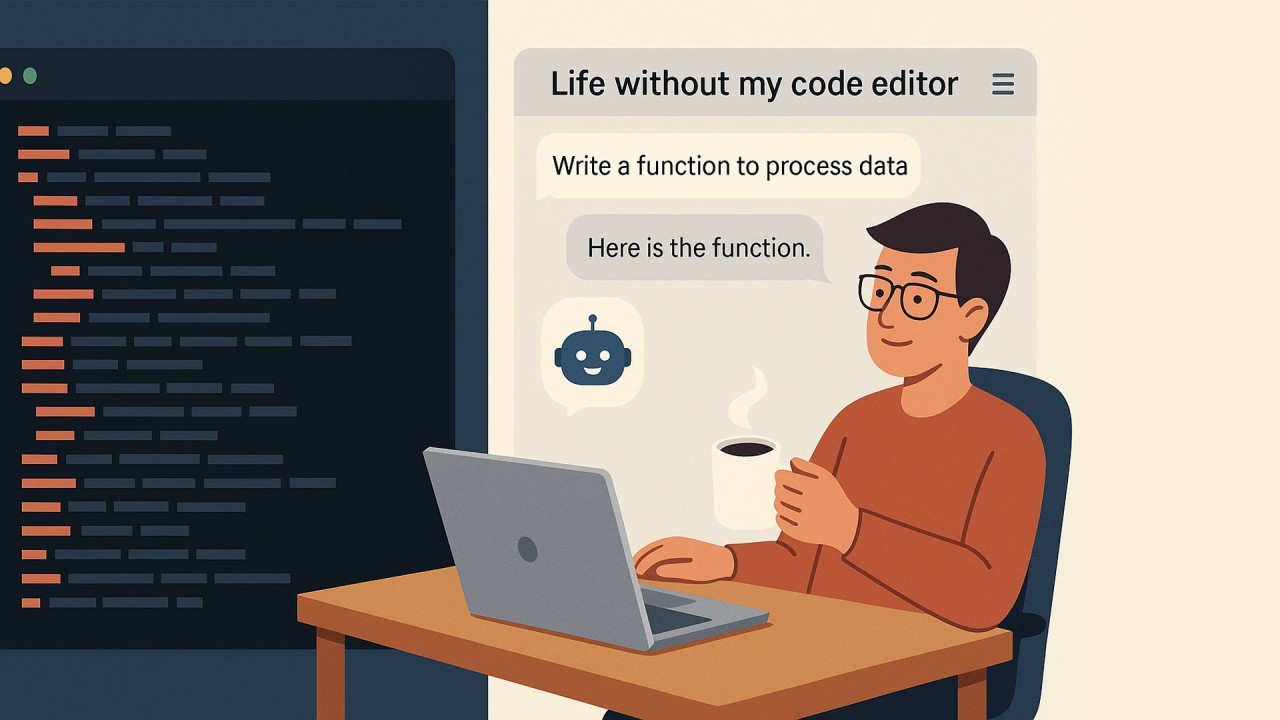
I’ll admit, as a long-time engineer, I was both excited and skeptical when I first tried the new Codex agent. The idea of coding withoutmy trusty IDE, which just happens to be JetBrains most of the time, felt like stepping into the unknown.
Fast forward a few months, and here’s a personal confession:
I’ve practically stopped using my code editor for most tasks.
Instead of manually writing code, I now spend my time writing specs and conversations with Codex, and the results have been nothing short of game-changing.
Not long ago, a typical morning would involve firing up JetBrains, checking out a new feature branch, and writing code for hours.
Today, my workflow looks different. I start by describing what I need in plain English (in a prompt or two), and let Codex take a crack at it.
For instance, I recently needed to add a new feature toggle system to an application along with some unit tests. Normally, I’d create the module, write boilerplate code for enabling/disabling features, then write tests, probably a few hours of work.
This time, I asked Codex to do it. Within 15 minutes, it had spun up a sandbox, generated the feature toggle module code, and even written a suite of unit tests and a couple of integration tests exercising the new toggles.
I watched in real-time as it ran our test suite, saw a failed test due to a minor logic error, automatically fixed the bug, and re-ran tests to get a green result. When it was done, I reviewed the commit; it was clean, followed conventions, and the tests gave me confidence. I merged it with only minor tweaks.
My role felt closer to a reviewer/QA than a coder on that task.
There’s a profound shift in how it feels to develop this way. In one sense, it’s incredibly empowering; I can tackle more feature tickets in a day than I used to in a week, because I’m not hand-holding the computer through each loop and conditional.
I’ve even used Codex to pull in commits from colleagues (having it explain a PR from another developer, or adjust my code to integrate someone else’s changes) and to quickly spin up proof-of-concept implementations of ideas that would’ve been back-burnered otherwise.
Tasks that I used to dread, like writing exhaustive unit tests or performing large-scale refactors, are now things I can delegate and supervise. It’s as if I have an infinitely patient developer working beside me, one who writes boilerplate at superhuman speed.
I’ve learned that the art of giving clear instructions is now part of my job. If something goes wrong, it’s often because my prompt was ambiguous or I didn’t specify a constraint that I cared about.
Perhaps the biggest change is psychological: trusting the agent. It took a few successful projects to build confidence that I could rely on Codex.
By now, seeing the agent handle tasks end-to-end, even generating documentation, has convinced me that this approach isn’t just a novelty, it’s the future…which just happens to be right now.
I still open my IDE when I need to deeply understand code or do a complex debug session, but those cases are getting rarer. Most of the time, I’m interacting with Codex via chat, not manually editing files. It’s a bit like moving from manual stick shift to autopilot: I still need to know how to drive, but I engage the autopilot for much of the journey.
Today, I spend more time thinking about what I want to build and why, and less time on the mechanical details of howto code it. And isn’t that the goal?
I find I can focus on the complex design decisions and let the AI handle the rote implementation.
This frees up mental energy and has even rekindled some of the creative joy of programming, because I can prototype ideas so quickly and see them come to life without slogging through setup and boilerplate.
It truly feels like we’re at the dawn of a new way of building software.